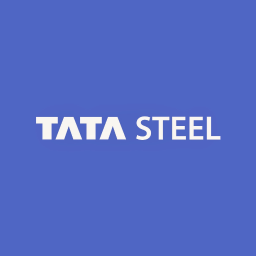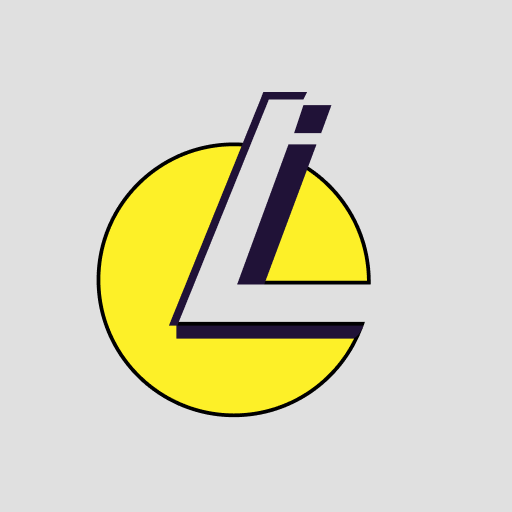Bajaj Auto Share Price
NSE: BAJAJ-AUTO|BSE: 532977|AutomobileBajaj Auto Share Price Chart
Bajaj Auto Stock Performance
Market cap | Open ₹9,516.50 | Prev. Close ₹9,776.00 |
Circuit range ₹10,753.50 - ₹8,798.50 | Day range ₹9,516.50 - ₹9,704.50 | Year range ₹7,089.35 - ₹10,187.00 |
Volume 3,19,652 | Avg. traded ₹9,622.20 | Revenue (12m) ₹51,431 Crs |
About Bajaj Auto
Part of the Bajaj Group, founded by Jamna Lal Bajaj, Bajaj Auto is among the largest two and three-wheeler manufacturers in India. The company is engaged in the development, manufacturing and distribution of motorcycles, commercial vehicles and electric two-wheelers and their parts. It was incorporated under the name M/S Bachraj Trading Corporation Limited.
The company started selling imported two- and three-wheelers in India in 1948 before obtaining a licence for manufacturing from the Government of India in 1959. Bajaj Auto became a public entity in 1960. The same year it launched the iconic Vespa 150, under the licence from Piaggio of Italy.
Business operations
By 1970, Bajaj rolled out its 100,000th vehicle, marking a significant milestone in a country where the automobile demand was largely limited. A year later, the company rolled out its first three-wheeler goods carrier. In the year 1972, Bajaj launched the Chetak scooter which in years to come attained an iconic status in the country. The company entered the autorickshaw segment with the launch of Bajaj Re.
With the back-to-back launches going its way, Bajaj saw an opportunity in the bike segment and introduced its highly popular M50 which received great response. In 1985, the company started production in its Waluj plant in Mahrashtra's Aurangabad. Bajaj teamed with Japan's Kawasaki to launch a conventional modern-day two-stroke motorcycle KB100 in 1986.
The company introduced its cult Hamara Bajaj campaign which in years to come played a significant role in the brand's recall value. After Chetak, it was time for the company to introduce another scooter, Sunny. The new scooter, launched in 1990, was targeted at young buyers.
Sunny was followed up with the launch of Kawasaki Bajaj 4S Champion in 1991. In five decades of its operation, Bajaj Auto completed the milestone of selling 10 million vehicles in the Indian market in 1995.
Two years later, Bajaj rolled out another new product, Boxer. The bike was not just a success in India but gained massive response in the African markets as well.
The company launched Bajaj Caliber which set a new record of selling 1 lakh units in just a year, showing the growing demand for motorcycles in India.
With the turn of the century, Bajaj entered the sports biking segment by launching the Pulsar in 2001. The bike, after two decades of its launch, is among the best-selling in its segment even today.
Bajaj introduced a new engine option in the Pulsar bikes, loading it with DTS-i technology.
The year 2004 saw the company introducing Bajaj Discover and CT100. A year later, Bajaj Avenger made its way to the market.
In 2007, Bajaj announced a partnership with KTM to bring racing bikes to the country. In 2013, the company introduced the first made-in-India KTM bikes — Duke 125 and Duke 250.
In 2019, the company made a move in the electric two-wheeler segment with the launch of revamped Chetak. The company invested ₹300 crore for a manufacturing unit at Akurdi. The new unit can produce 5 lakh EV units every year.
Bajaj Auto's market capitalisation stood at over ₹1.89 lakh crore as of December 27, 2023. Bajaj Auto's share price has surged over 98% in the last three years.
Financial Highlights
- The total income stood at ₹ 37,642.90 crore in FY23 following a 9.3% growth from the figures of ₹34,428.85 crore in the previous financial year.
- The revenue from operations in FY23 was ₹36,455.38 crore, up from ₹33,144 crore in the previous year.
- The company made expenses of ₹30,330.21 crore in FY23.
- Bajaj Auto reported a profit of ₹ 6,060.21 crore in FY23.
- The earnings per share (EPS) of the auto giant was ₹212.5 in FY23, marginally down from ₹213.2 in the last fiscal year.
Bajaj Auto Share Price Today
As of 5 Mar 2026, Bajaj Auto share price is ₹9,652.50. The stock opened at ₹9,516.50, compared to its previous close of ₹9,776.00. During today's trading session, Bajaj Auto share price moved in the range of ₹9,516.50 to ₹9,704.50, with an average price of ₹9,610.50 for the day. Looking at its last 52-week, the stock has touched a low of ₹9,516.50 and a high of ₹9,704.50. On the performance front, Bajaj Auto share price has increased by 6.41% over the last six months and is up 31.63% on a year-on-year basis.
The market capitalization of Bajaj Auto is ₹2,73,296 Crs, with a P/E ratio of 27.0 and a dividend yield of 2.67%.
Bajaj Auto Fundamentals
P/E ratio 26.98 | ROA 24.62% | Dividend yield 2.67% | Operating profit margin 23.03% | Current ratio 0.74 |
P/B ratio 6.84 | ROCE 37.72% | Debt/Equity ratio 0.03 | Net profit margin 16.3% | Interest coverage 164.2 |
ROE 28.6% | EV/EBITDA 19.05 | EPS 292.1 | Quick ratio 1.27 | Asset turnover 1.44 |
Bajaj Auto Revenue Statement
Year | Revenue | Operating Profit | Net Profit |
|---|---|---|---|
Mar-25 | ₹52,468.96 | ₹10,223.53 | ₹7,324.73 |
Mar-24 | ₹46,306.45 | ₹10,040.04 | ₹7,708.24 |
Mar-23 | ₹37,642.90 | ₹7,841.98 | ₹6,060.21 |
Mar-22 | ₹34,428.85 | ₹7,651.68 | ₹6,165.87 |
Bajaj Auto Cash Flow
Year | Operating | Investing | Financing |
|---|---|---|---|
Mar-25 | ₹-1,405.57 | ₹-1,056.27 | |
Mar-24 | ₹-343.73 | ₹-6167.36 | |
Mar-23 | ₹-7180.70 | ||
Mar-22 | ₹-80.86 | ₹-4056.33 |
Bajaj Auto Balance Sheet
Period | Total Asset | Total Liability |
|---|---|---|
Mar-25 | ₹54,198.61 | ₹19,009.86 |
Mar-24 | ₹39,343.69 | ₹10,381.27 |
Mar-23 | ₹35,136.45 | ₹5,774.90 |
Mar-22 | ₹35,111.21 | ₹5,251.55 |
Bajaj Auto Share Price History
| Day | Open | Close | Change % |
|---|---|---|---|
17-Feb-26 | ₹9,651.00 | ₹9,826.50 | |
16-Feb-26 | ₹9,710.00 | ₹9,697.50 | -0.64% |
13-Feb-26 | ₹9,800.50 | ₹9,760.00 | -0.81% |
12-Feb-26 | ₹9,876.50 | ₹9,840.00 | -0.30% |
11-Feb-26 | ₹9,818.00 | ₹9,869.50 | |
10-Feb-26 | ₹9,605.00 | ₹9,774.00 | |
09-Feb-26 | ₹9,598.00 | ₹9,590.00 | |
06-Feb-26 | ₹9,620.00 | ₹9,518.50 | -1.33% |
Bajaj Auto Corporate Actions
Dividend • ₹210/share
Ex date 20 Jun 2025
Dividend • ₹80/share
Ex date 14 Jun 2024
Bajaj Auto Futures & Options
Stocks Similar to Bajaj Auto
Stock Name | Price | Change % |
|---|---|---|
| Atul Auto | ₹453.90 | -₹23.60 (-4.94%) |
| Eicher Motors | ₹7,626.50 | -₹199.50 (-2.55%) |
| Hero MotoCorp | ₹5,500.00 | -₹91.50 (-1.64%) |
| TVS Motor Company | ₹3,746.70 | -₹66.40 (-1.74%) |
Trending Stocks
Stock Name | Price | Change % |
|---|---|---|
| HDFC Bank Share Price | ₹868.65 | -₹10.75 (-1.22%) |
| Infosys Share Price | ₹1,307.40 | +₹18.50 (1.44%) |
| ITC Share Price | ₹311.95 | -₹2.95 (-0.94%) |
| ITC HOTELS LIMITED Share Price | ₹163.95 | -₹8.57 (-4.97%) |
| JIO FIN SERVICES LTD Share Price | ₹241.30 | -₹7.70 (-3.09%) |
| Reliance Share Price | ₹1,345.00 | -₹13.00 (-0.96%) |
| Tata Motors Share Price | ₹351.20 | -₹19.40 (-5.23%) |
| Tata Power Share Price | ₹365.85 | -₹2.50 (-0.68%) |
| Tata Steel Share Price | ₹196.73 | -₹14.28 (-6.77%) |
| TCS Share Price | ₹2,587.80 | -₹25.70 (-0.98%) |
Top Gainers Today
| Company | Market Price | Change |
|---|---|---|
| ₹25.32 | +1.84 (+7.84%) | |
| ₹491.70 | +33.45 (+7.3%) | |
| ₹999.90 | +62.2 (+6.63%) | |
| ₹1398.40 | +84.4 (+6.42%) | |
| ₹417.60 | +19.55 (+4.91%) |
Top Losers Today
| Company | Market Price | Change |
|---|---|---|
| ₹280.00 | -28.65 (-9.28%) | |
| ₹1101.20 | -106.1 (-8.79%) | |
| ₹196.73 | -14.28 (-6.77%) | |
| ₹1204.80 | -85.5 (-6.63%) | |
| ₹113.79 | -7.81 (-6.42%) |









